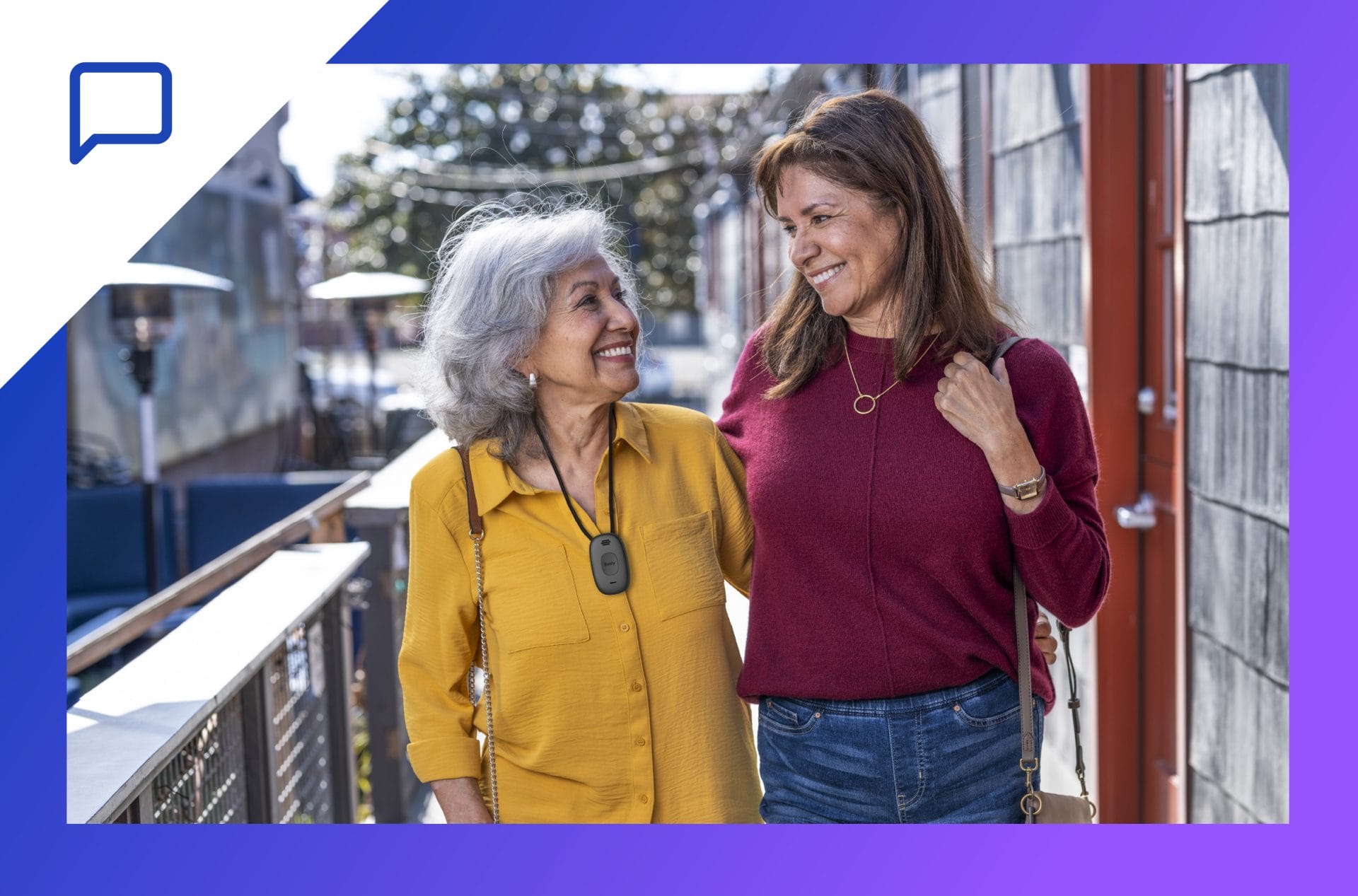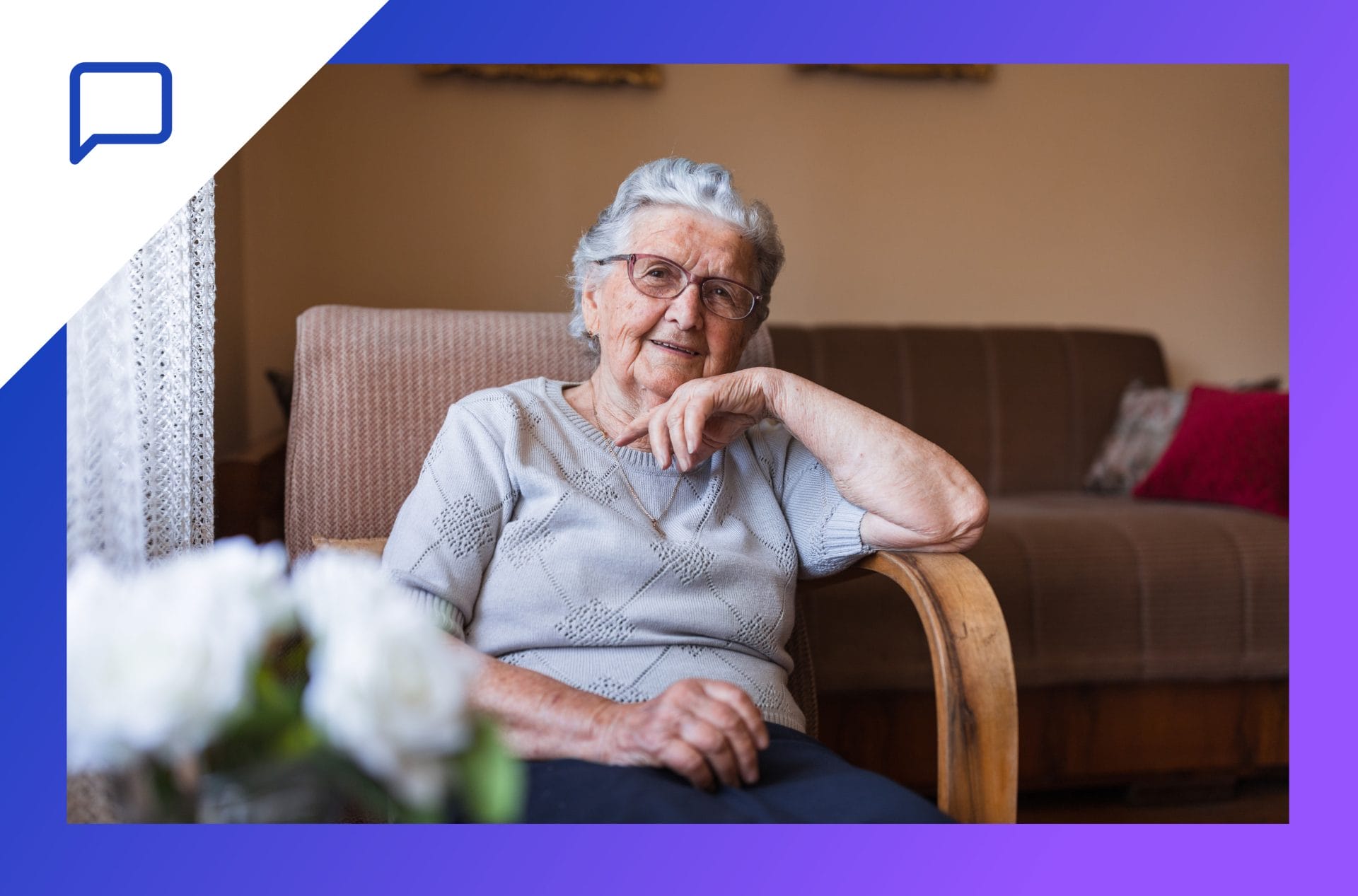How addressing social isolation can drive better health
In 2024, 33% of adults aged 50 to 80 reported feeling lonely and isolated, highlighting a growing concern among the senior population.1 Social isolation not only affects emotional well-being but also has serious consequences for mental and physical health. Research shows that loneliness is linked to a higher risk of premature death, with an American Heart Association study revealing a 32% higher risk of stroke.2 These statistics underscore the need to address social isolation as a public health issue. For health plan leaders, offering social isolation support to members can help reduce risk, lower costs, and extend healthy aging.
What exactly is social isolation?
The National Institute on Aging defines social isolation is the absence of social interactions, meaningful relationships, or community engagement.3 It is not merely a feeling of loneliness, but a measurable condition that can lead to significant health risks. It manifests in various forms, including limited social networks and infrequent social interactions.
Research by New York University Langone Medical Center indicates that approximately 20% to 25% of community-dwelling older adults are socially isolated, with about 4% experiencing severe isolation.4
Social isolation’s impact on members and health plans
Social isolation has far-reaching consequences beyond members’ well-being:
- Mental and emotional health: Social isolation has been linked to increased rates of depression, anxiety, and suicidal thoughts.5 One study conducted by the University of Calgary even showed that isolated seniors are more likely to experience cognitive decline, memory impairment, and reduced quality of life.6
- Physical health: According to the U.S. Surgeon General, isolated seniors face higher risks of cardiovascular diseases, stroke, dementia, and premature mortality.7
- Physical activity and mobility: Social isolation is related to reduced physical activity among seniors, which can further exacerbate health issues.8 The lack of social interaction contributes to decreased physical activity and mobility, leading to frailty and an increased risk of falls.
Social isolation not only affects individual health, but also places a considerable strain on healthcare organizations responsible for caring for these individuals. For health plans, two of the most pressing concerns are disengaged members and rising healthcare costs, as socially isolated seniors often require more intensive medical interventions:
- Increased costs: It’s estimated that social isolation leads to billions of dollars in additional Medicare spending annually due to increased hospitalizations and long-term care needs.
- Disengaged members: Isolated individuals tend to be less engaged with their healthcare providers, leading to poorer adherence to treatment plans and lower overall health outcomes. This disengagement has the potential to negatively impact Star Ratings for health plans.
Addressing social isolation is a financial necessity for health plans aiming to improve outcomes, reduce costs, and better engage members.
How to keep members connected, healthy, and engaged
Health plans must adopt proactive strategies to combat social isolation among their members, including:
- Screening for isolation: Regular assessments can help identify members at risk for social isolation. By working with provider organizations to implement standardized screening tools during routine check-ups, health plans can help facilitate earlier interventions.
- Technology: Access to technology like video calls, messaging apps, online communities, simplified phones, and telehealth platforms foster connection, accessibility, and emotional support.
- Community engagement programs: By fostering partnerships with local organizations, health plans can help create programs that encourage social interaction among seniors. These types of programs can include activities such as group exercise classes or community service opportunities.
- Education and resources: Providing educational materials about the importance of social connections can empower seniors to seek out relationships and engage with their communities.
- Social care support: Wraparound social care—like that from Best Buy Health—can provide proactive check ins, a listening ear during moments of acute loneliness, and research and referrals to local organizations and communities.
By implementing these strategies, health plans can better address the issue of social isolation among their members.
Best Buy Health’s Social Isolation Prevention Program
The Best Buy Health Social Isolation Prevention Program is designed to proactively engage isolated members through technology, tailored outreach, and community connections, including:
- A social isolation risk assessment to help identify at-risk members and create individualized care plans based on specific needs.
- Personalized outreach through regular wellness check-ins to ensure continuous engagement with members based on risk levels.
- Connections to community resources to help members access local services that support daily living activities.
- Care coordination to enhance communication between caregivers and healthcare providers and improve overall member outcomes.
- Medical alert devices that enable members to live more independently while having immediate access to both emergency and social support services.
- Reporting and analytics of real-time data to allow health plans to track member engagement and program effectiveness.
This comprehensive approach transforms social isolation challenges into opportunities for more connection and coordinated care that delivers better member outcomes. For health plans, this program helps:
- Reduce healthcare costs through early interventions and ongoing member support designed to lower the likelihood of emergency department visits, hospitalizations, and long-term treatments.
- Improve member outcomes using personalized outreach and care coordination to enhance adherence to care plans, improve overall health, and reduce complications.
- Create data-driven insights, including real-time reporting and analytics to enable better decision-making, resource allocation, and program efficiency.
- Support CMS requirements by addressing social determinants of health and promoting preventative care.
- Increase member satisfaction through higher engagement that builds trust.
It’s through this program that Best Buy Health can help health plans proactively engage with socially isolated members using both technology and human touch.
Conclusion
An effective social isolation prevention strategy can yield substantial benefits for both health plans and members. By recognizing the importance of social connections as a fundamental determinant of health, health plans can enhance member satisfaction while driving down costs associated with chronic disease management.
Social care with support for isolation demonstrates how proactive engagement through personalized care plans and technology can significantly improve the quality of life for vulnerable, aging members. Such initiatives fill gaps in care and contribute positively to overall plan performance by enhancing member engagement and adherence.
If you’d like to learn more about how Best Buy Health’s social care services can support your populations, reach out to our team today!
SOURCES:
1: JAMA Network, Loneliness and Social Isolation Among US Older Adults, Department of Internal Medicine, University of Michigan Medical School, December 9th, 2024.
2: American Heart Association, Effects of Objective and Perceived Social Isolation on Cardiovascular and Brain Health: A Scientific Statement From the American Heart Association, August 4, 2022.
3: National Institute on Aging, Loneliness and Social Isolation: Tips for Staying Connected, July 11, 2024.
4: JAMA Network, Social Isolation Changes and Long-Term Outcomes Among Older Adults, New York University Langone Medical Center, July 24, 2024.
5: Tulane University: Celia Scott Weathehhead School of Public Health & Topical Medicine, Understanding the Effects of Social Isolation on Mental Health, December 8, 2020.
6: ScienceDirect, The impact of loneliness and social isolation on the development of cognitive decline and Alzheimer’s Disease, University of Calgary, April 2023.
7: U.S Department of Health and Human Services, Our Epidemic of Loneliness and Isolation, The U.S. Surgeon General’s Advisory on the Healing Effects of Social Connection and Community, 2023.
8: BMC Public Health, Associations between social isolation, loneliness, and objective physical activity on older men and women, University of Roehampton, Loughborough University, University College London, January 16, 2019.


